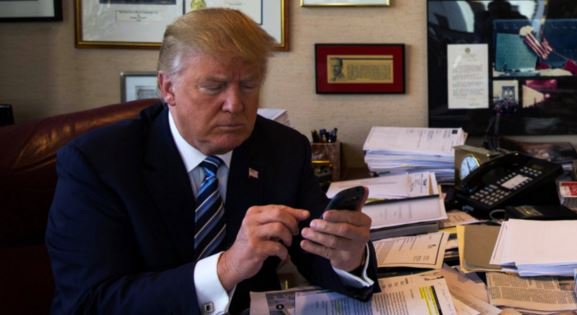
Presidents Donald Trump and Xi Jinping discussed efforts to denuclearise North Korea and improve US-Chinese trade relations, though the ship's passage was not mentioned in a White House readout of the conversation.
Relations between the two nations had been warmer since Trump and Xi met in April, but Washington has taken a series of actions that have infuriated Beijing in recent days.
House cracks down on illegal immigrants with bills backed by Trump
The latest move to anger China came on Sunday, when the USS Stethem destroyer sailed less than 12 nautical miles from tiny Triton Island in the Paracel Islands archipelago, which is claimed by China as well as Taiwan and Vietnam, a US official told AFP.
The distance is commonly accepted as constituting the territorial waters of a landmass. Such operations are meant to demonstrate freedom of navigation in disputed waters.
The move prompted China to deploy military vessels and fighter jets, foreign ministry spokesperson Lu Kang said in a statement late Sunday, calling the US operation a "serious political and military provocation".
The spokesperson called on Washington to "immediately stop" operations that violate Chinese sovereignty and threaten the country's security.
It was the second operation of its kind carried out by the United States since Trump took office.
Last week, China lashed out at Washington after Trump authorised a $1.3 billion arms sale to Taiwan, which China considers a rebel province, and the US Treasury Department imposed sanctions on a Chinese bank accused of laundering North Korean cash.
Washington also vexed Beijing by voicing concern about freedom in semi-autonomous Hong Kong and placing China on a list of the world's worst human trafficking offenders.
Hours after the naval operation, Trump held separate phone calls with Xi and Japanese Prime Minister Shinzo Abe focused on the regional tensions over North Korea's nuclear programme.
In his call with Xi, "President Trump raised the growing threat posed by North Korea's nuclear and ballistic missile programmes," the White House said.
"Both leaders reaffirmed their commitment to a denuclearised Korean Peninsula," it said.
Trump, who berated Beijing over trade during the US election campaign, also "reiterated his determination to seek more balanced trade relations with America's trading partners".
While there was no mention of the warship in the White House statement, it said the two leaders discussed "a range of other regional and bilateral issues of mutual interest" and indicated the two would meet at the Group of 20 summit in Germany this week.
The recent tensions marked a sharp reversal in tone from April, when Xi travelled to Trump's Mar-a-Lago resort in Florida for a first face-to-face meeting that Trump later said had helped build an "outstanding" relationship.
Bonnie Glaser, director of the China Power Project at the Center for Strategic and International Studies think tank, said it was possible that during the call Xi would agree to take some of the steps Trump has demanded to pressure Pyongyang.
"I think that Xi is keen to keep Sino-US relations on an even keel," Glaser told AFP. "Of course, he can't appear to be making concessions or taking steps in response to US pressure."
States refuse Trump commission request for US voter data
The latest US "freedom of navigation" exercise came as Beijing continues muscular efforts to cement its claim to nearly all of the South China Sea, parts of which are also claimed by Taiwan and Southeast Asian nations including the Philippines, Brunei, Malaysia and Vietnam.
China has rapidly built reefs in the area into artificial islands capable of hosting military planes.
On May 25, the USS Dewey guided-missile destroyer sailed less than 12 nautical miles from Mischief Reef - part of the disputed Spratly Islands in the South China Sea, south of the Paracel Islands.


1729662874-0/One-Direction-(1)1729662874-0-165x106.webp)














COMMENTS
Comments are moderated and generally will be posted if they are on-topic and not abusive.
For more information, please see our Comments FAQ